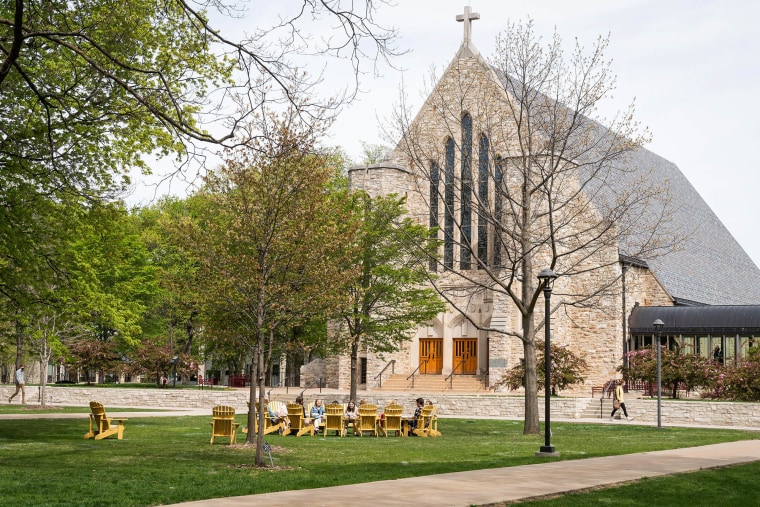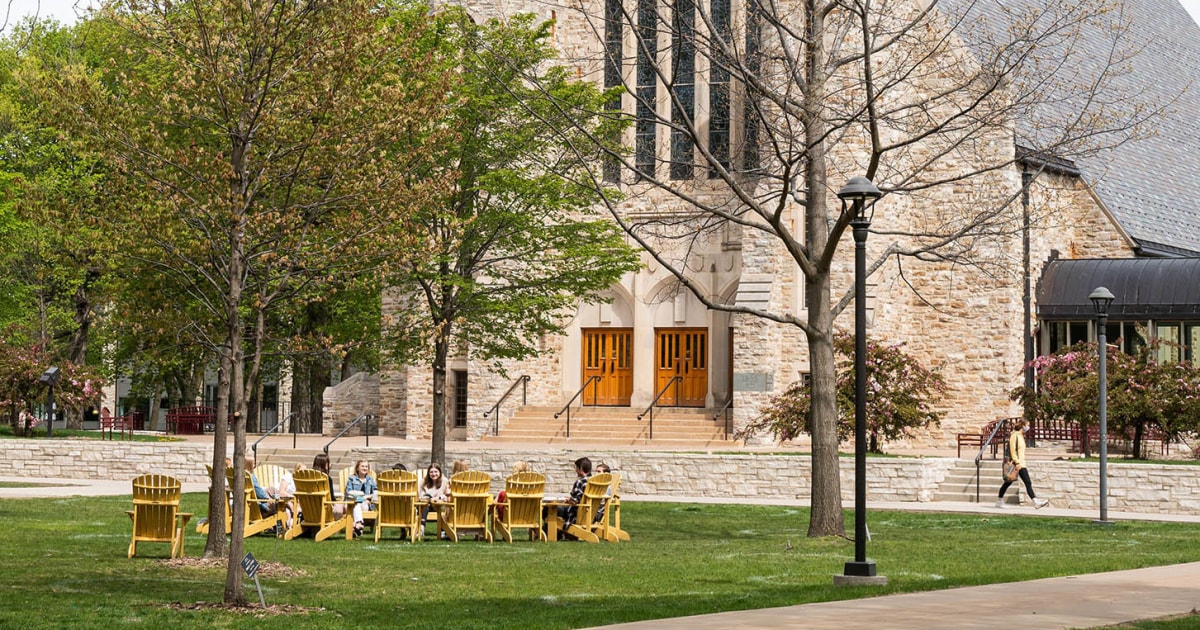NORTHFIELD, Minn. — On average, about two-thirds of students on college campuses get out and vote during every presidential election cycle, according to Tufts University Institute For Democracy & Higher Education. But one college in Minnesota blows the rest out of the water.
St. Olaf College boasted an 87.6% voter turnout rate in 2020, taking home the top prize in the All In Campus Democracy Challenge as the most civically engaged college campus in the country. The small liberal arts college reached that number with help from its “election ambassador program,” and this year, the school is looking to break its own record.
The school has about 120 non-partisan election ambassadors, who are embedded in the St. Olaf community. They set up tables outside the main cafeteria to help students register and visit classrooms to answer questions about upcoming elections.
“We are all about interpersonal connections,” said junior Roxi Wessel, an election ambassador. “For example, I’m in a band that has 100 people in it, and so I get up every year that there’s an election, I stand up in front of everyone and I say, ‘Hi, you all know me.’”

“Folks who are connected to you already know you… have a higher chance of acting on those things that you bring to their attention,” Wessel added, explaining the program’s community-based approach to civic engagement.
Several factors make St. Olaf the highest-voting college in the country, including its nonpartisan approach to the election ambassador program. “Making sure that everyone’s voice is heard is the most important part, no matter what party or no party you support,” said Elijah Sonntag, a senior.
The students admit that living in Minnesota helps. It has led the nation in voter turnout during the past three presidential elections and is one of the easiest states in the country to cast a ballot. Minnesotans can vote by mail, vote early or even register on Election Day, all contributing to the college’s record-breaking turnout last presidential cycle.
“We’re really starting on third base here,” said political science professor Christopher Chapp, who advises St. Olaf’s election ambassadors.
Jen McAndrew, from Tuft University’s Tisch College of Civic Life, said that while Minnesota makes campus voting accessible, laws in other states are creating more barriers to entry. “We believe when it comes to young people and voting, we don’t actually have an apathy problem. We have an access problem.”
Despite St. Olaf’s culture of voting, the election ambassadors do say they’ve heard concerns of apathy or disengagement from some of their classmates. To combat that indifference, they remind their fellow students that all politics is local.
“A big part of our work is educating people about voting down the ballot,” said Madeline Altman, a freshman election ambassador. “There’s a lot of state issues, things that aren’t controlled on the national level… people don’t always think about the impact that voting in their state elections could have, infrastructure, roads, stuff like that,” Sonntag said of their approach to tackling apathy.
Chapp believes the voting environment set at St. Olaf’s can help produce a generation of lifetime voters. “Voting has an inertia to it,” said Chapp. “When students become a first-time voters, they’re more likely to vote in future elections,” he added.

Leave a Reply